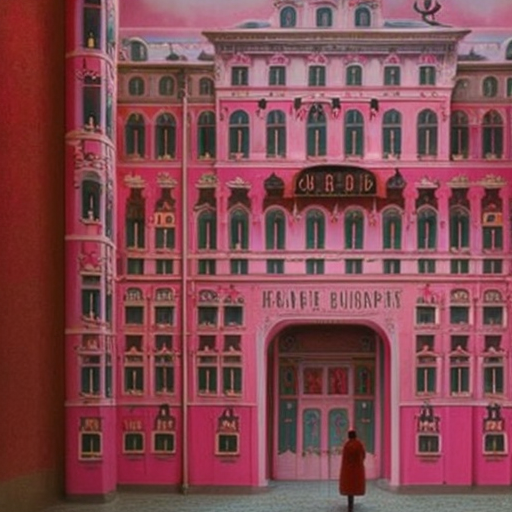The Grand Budapest Hotel
Summary: In “The Grand Budapest Hotel,” a legendary concierge named Gustave H. and his loyal lobby boy, Zero Moustafa, become embroiled in a thrilling adventure after inheriting a priceless painting and being framed for murder.
Main Cast and Crew:
- Director: Wes Anderson
- Writer: Wes Anderson
- Key Actors:
- Ralph Fiennes as M. Gustave
- Tony Revolori as Zero Moustafa
- F. Murray Abraham as the older Zero Moustafa
- Adrien Brody as Dmitri Desgoffe-und-Taxis
- Willem Dafoe as J.G. Jopling
- Saoirse Ronan as Agatha
- Edward Norton as Inspector Henckels
- Music Director: Alexandre Desplat
- Director of Photography: Robert D. Yeoman
- Producers: Wes Anderson, Scott Rudin, Steven Rales, Jeremy Dawson
Plot:
“The Grand Budapest Hotel” is a whimsical tale set in the fictional European country of Zubrowka during the 1930s. The story is narrated by the older Zero Moustafa, who recounts his time as a lobby boy at the eponymous hotel under the mentorship of the legendary concierge, M. Gustave.
When one of the hotel’s wealthy guests, Madame D., dies, M. Gustave and Zero embark on a journey to claim a valuable painting, “Boy with Apple,” left to Gustave in her will. However, they soon find themselves accused of Madame D.’s murder, leading to a series of misadventures and encounters with eccentric characters.
As they navigate a world on the brink of war, M. Gustave and Zero must outwit the authorities, including the ruthless Dmitri Desgoffe-und-Taxis and his menacing henchman, J.G. Jopling. Along the way, they encounter a secret society of hotel concierges and form unlikely alliances to clear their names and protect the hotel’s legacy.
Themes and Motifs:
“The Grand Budapest Hotel” explores themes of friendship, loyalty, and the preservation of beauty in a changing world. The film delves into the nostalgia for a bygone era, capturing the elegance and charm of the early 20th century. It also examines the impact of war and political upheaval on society, contrasting the opulence of the hotel with the encroaching darkness of fascism.
Wes Anderson’s signature visual style is on full display, with meticulously crafted sets, symmetrical compositions, and vibrant color palettes. The film’s whimsical tone and offbeat humor add to its unique charm, creating a world that is both fantastical and grounded in emotional depth.
Reception and Legacy:
Upon its release in 2014, “The Grand Budapest Hotel” received critical acclaim for its visual artistry, witty screenplay, and stellar ensemble cast. It was nominated for nine Academy Awards, winning four, including Best Production Design, Best Costume Design, Best Makeup and Hairstyling, and Best Original Score.
The film’s legacy lies in its enduring popularity and influence on contemporary cinema. “The Grand Budapest Hotel” showcases Wes Anderson’s distinctive storytelling style, which has since become synonymous with his name. Its success further solidified Anderson’s reputation as a visionary director with a unique and meticulous approach to filmmaking.
Recommendation:
“The Grand Budapest Hotel” is a must-watch for fans of Wes Anderson’s distinctive style and those who appreciate visually stunning and whimsical storytelling. The film’s blend of adventure, comedy, and heartfelt moments creates an immersive experience that transports viewers to a world of nostalgia and enchantment.
Memorable Quote:
“Keep your hands off my lobby boy!” – M. Gustave












